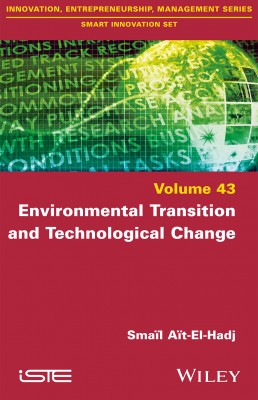
Faced with the scale and intensity of the ecological crisis, environmental transition is underway, consisting of a first phase of technological mutation, aimed at replacing technologies harmful to the environment with those which have no destructive effects on the earth system and its equilibrium.
This book examines the roots of the concept of environmental transition, identifying and characterizing the negative effects of technology on the environmental crisis. We will then identify the technological mutations that have the potential to contribute to environmental transition, and demonstrate how these changes are already forming part of a new emerging “technological system”.
We will conclude by addressing the question of the limits of technological responses to the environmental crisis, demonstrating the importance of the dimensional factors of human activity and weight of growth in this crisis, thus raising the issue of global reconsideration, with reference to the place and articulation of human activity in the Earth system.
Part 1. Anthropocene Crisis and Ecological Transition.
1. Emergence of the Anthropocene: A History of the Dynamics of the Environmental Effects of Human Activity and Technology.
2. From the Ecological Crisis of the Anthropocene to the Ecological Transition.
Part 2. Technological Change in the Face of the Ecological Crisis.
3. Technological Change for the Energy and Transport Transition.
4. Technological Responses to the Ecological Crisis in Processing Activities.
5. Emerging Technologies: Repairing the Effects of the Ecological Crisis.
Part 3. Technological Change for the Ecological Transition: Its Process and Limits.
6. Towards a New Technological System.
7. Transition Procedures and Limits.
Smaïl Aït-El-Hadj is Professor of Industrial Engineering and Head of the Eco-Innovation Research Unit at ITECH School of Engineering – University of Lyon, France. He is also a board director of the Innovation Research Network.